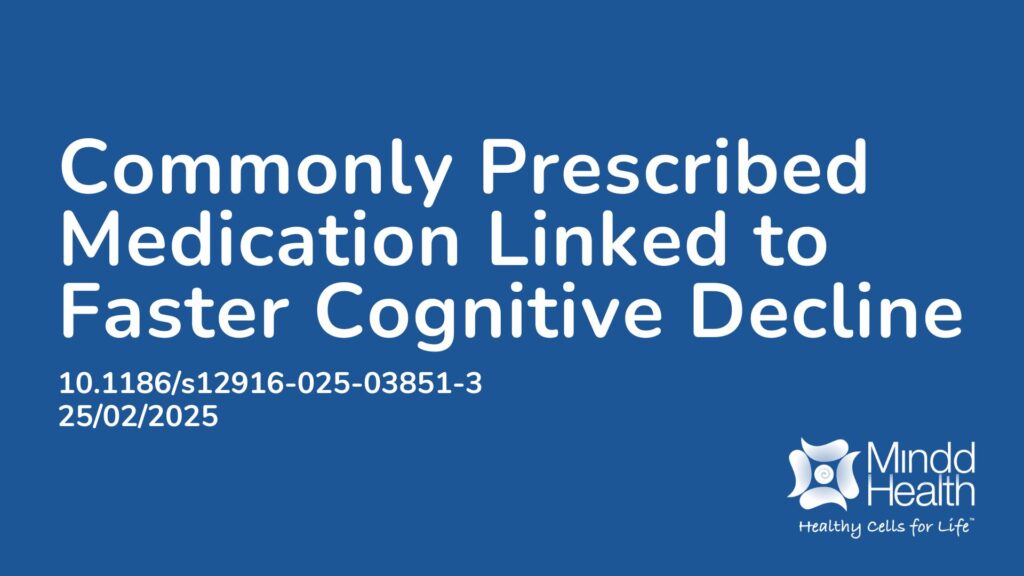Summary:
Antidepressants are often used to help manage symptoms like anxiety, depression, and aggression in people with dementia. While selective serotonin reuptake inhibitors (SSRIs) are usually preferred due to fewer side effects, some studies suggest they may increase the risk of dementia when compared to therapy. This Swedish study looked at over 18,000 people with dementia, tracking their antidepressant use and changes in their cognition, fractures, and death rates. It found that those using antidepressants, especially SSRIs like sertraline, citalopram, escitalopram, and mirtazapine, experienced faster cognitive decline than those not using them. The risk was higher with larger doses and more severe dementia. SSRIs were also linked to higher chances of severe dementia, fractures, and death. The study highlights the need for regular monitoring and careful use of antidepressants in people with dementia, considering the type of drug, dose, and the individual’s dementia severity.
Abstract:
Background: Dementia is associated with psychiatric symptoms but the effects of antidepressants on cognitive function in dementia are understudied. We aimed to investigate the association between antidepressants and cognitive decline in patients with dementia, and the risk of severe dementia, fractures and death, depending on antidepressant class, drug, and dose. Methods: This is a national cohort study. Patients with dementia registered in the Swedish Registry for Cognitive/Dementia Disorders-SveDem from May 1, 2007, until October 16, 2018, with at least one follow-up after dementia diagnosis, and who were new users of antidepressants, were included. Antidepressant use as a time varying exposure defined during the 6 months leading up to dementia diagnosis or each subsequent follow-up. We used linear mixed models to examine the association between antidepressant use and cognitive trajectories assessed by Mini-Mental State Examination (MMSE) scores. We used Cox proportional hazards models to calculate the hazard ratios for severe dementia (MMSE score < 10), fracture, and death. We compared antidepressant classes and drugs, and analyzed dose–response. Results: We included 18740 patients (10 205 women [54.5%]; mean [SD] age, 78.2[7.4] years), of which 4271 (22.8%) received at least one prescription for an antidepressant. During follow-up, a total of 11912 prescriptions for antidepressants were issued, with selective serotonin reuptake inhibitors (SSRI) being the most common (64.8%). Antidepressant use was associated with faster cognitive decline (β (95% CI) = − 0.30(− 0.39, − 0.21) points/year), in particular sertraline (− 0.25(− 0.43, − 0.06) points/year), citalopram (− 0.41(− 0.55, − 0.27) points/year), escitalopram (− 0.76(− 1.09, − 0.44) points/year), and mirtazapine (− 0.19(− 0.34, − 0.04) points/year) compared with non-use. The association was stronger in patients with severe dementia (initial MMSE scores 0–9). Escitalopram showed a greater decline rate than sertraline. Compared with non-use, dose response of SSRIs on greater cognitive decline and higher risks of severe dementia, all-cause mortality, and fracture were observed. Conclusions: In this cohort study, current antidepressant use was associated with faster cognitive decline; furthermore, higher dispensed doses of SSRIs were associated with higher risk for severe dementia, fractures, and all-cause mortality. These findings highlight the significance of careful and regular monitoring to assess the risks and benefits of different antidepressants use in patients with dementia.
Article Publication Date: 25/02/2025
DOI: 10.1186/s12916-025-03851-3



